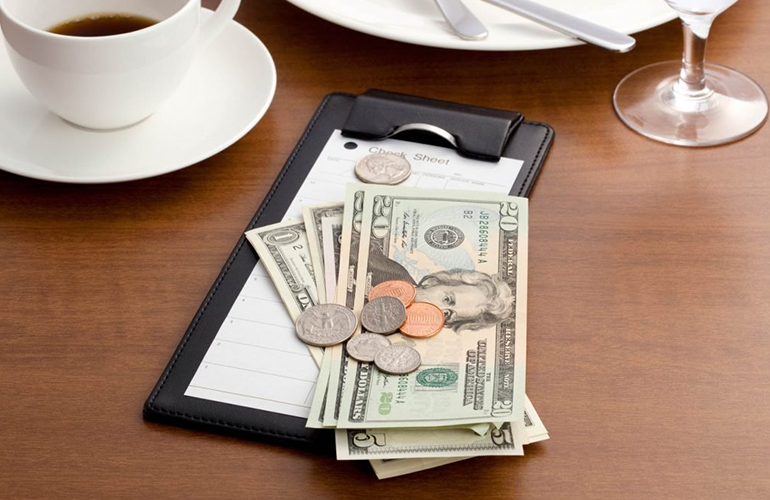All information about tipping “Baksheesh” in Egypt

Because of the economic situation of the country with an ever-expanding population and depletion of resources, this means that a lot of people may be unemployed (a rate much higher than in more developed countries). Even those who are employed in the service or hospitality industry (restaurants, hotels, bars, etc.) are most likely underpaid as their wages do not really reflect the value of the work they do. It is even more difficult for them to make a living with the problem of nonstop inflation, which means prices for everything even basic commodities like food and water keep rising steeply, while their wages remain the same and if they do rise, will not even rise to a fraction of the increase that prices have risen to.
This means that 90% of people who work in the service/hospitality industry try to make their main source of income from living off of tips. In fact, for these people, tips form a large majority of their income because without tips, their monthly wages/salaries would simply not be enough for them to survive in a place where prices rise steadily and salaries remain the same.
Bear in mind that these people quite often live hard lives, often responsible for feeding large families and may very well live in poverty simply because their income from work is not sufficient for them to live easy lives. Many of them are forced into these jobs because otherwise, they would not find another job at all in a country with such high unemployment rates and overpopulation.
Thus, almost everyone at your hotel asks for a tip, even if all they did was a small thing. You don’t have to pay huge tips as often the smallest bills are appreciated. However, you do not have to tip if you feel that you haven’t received any service or help at all or if you feel that the service was bad. Nobody will ever take offense or be disrespectful if you did not tip them.
Most public bathrooms are staffed, and visitors are expected to tip the attendant. Some restroom attendants, especially at tourist sites, will dole out toilet paper based on the tip they receive. Foreigners may be especially susceptible to this, and although some locals ask or demand tips, they are often not warranted.
There is no rule for what is considered tip-worthy, so one must be ready to hand out an Egyptian pound or two just in case, to use the bathroom, for instance. For services such as tour guides or translators, a tip of 20% or more is generally expected. Taxi drivers provide service based upon agreed prices rather than the more objective meter system used in some other countries, so tipping is not expected when using a taxi service, though tips are certainly accepted if offered. Tips are expected at restaurants and can range from a few pounds to 15%.
If you ask a stranger for directions, tips are not necessary and may even be considered offensive. Officials in uniform, such as police officers, should not be tipped. Remember that bribery is technically illegal, but it is likely that nothing will happen to you. Last but not least, be aware that as a foreign tourist, you are seen by many as easy money and you should not let yourself be pressured into tipping for unnecessary or unrequested “services” like self-appointed tour guides latching on to you.
Some general guidelines for tipping “Baksheesh” in Egypt
• Bathroom attendants: EGP5
• Cruises: EGP50/day, to be divided by all staff on board
• Guide: EGP100/day
• Hotel bellman: EGP50 for all bags
• Hotel doorman: EGP20 for services rendered (such as flagging down taxis)
• Restaurants: In fancier restaurants, a service charge (10-12%) is added to bills, but a 5-10% tip on top of that is common. In fast-food places, tipping is unnecessary
• Taxi drivers: not necessary especially if you agreed the fare in advance, not more than 10% of the metered fare
• Site custodians: EGP5 if they do something useful, none otherwise
• Tour drivers: EGP10/day
